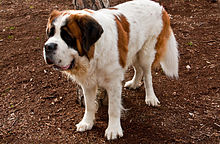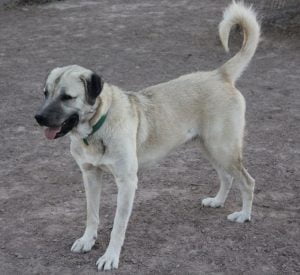Saint Bernard
Saint Bernard Rescue Adoption a Gentle Giant

-
Breed Group : WORKING
-
Origin : SWITZERLAND
-
Average Height : 26" - 30"
-
Average Weight : 120 - 180 lbs.
-
Life Span : 8 - 10 years
Photo Courtesy info : Adopt a Saint
-
Size
1 2 3 4 5 6 7 8 9 10 -
Energy
1 2 3 4 5 6 7 8 9 10 -
Intelligence
1 2 3 4 5 6 7 8 9 10 -
Ease of Training
1 2 3 4 5 6 7 8 9 10 -
Hypo-Allergenic
1 2 3 4 5 6 7 8 9 10 -
Shedding
1 2 3 4 5 6 7 8 9 10 -
Good with Kids
1 2 3 4 5 6 7 8 9 10 -
Good with Other Pets
1 2 3 4 5 6 7 8 9 10 -
Guard Dog
1 2 3 4 5 6 7 8 9 10







